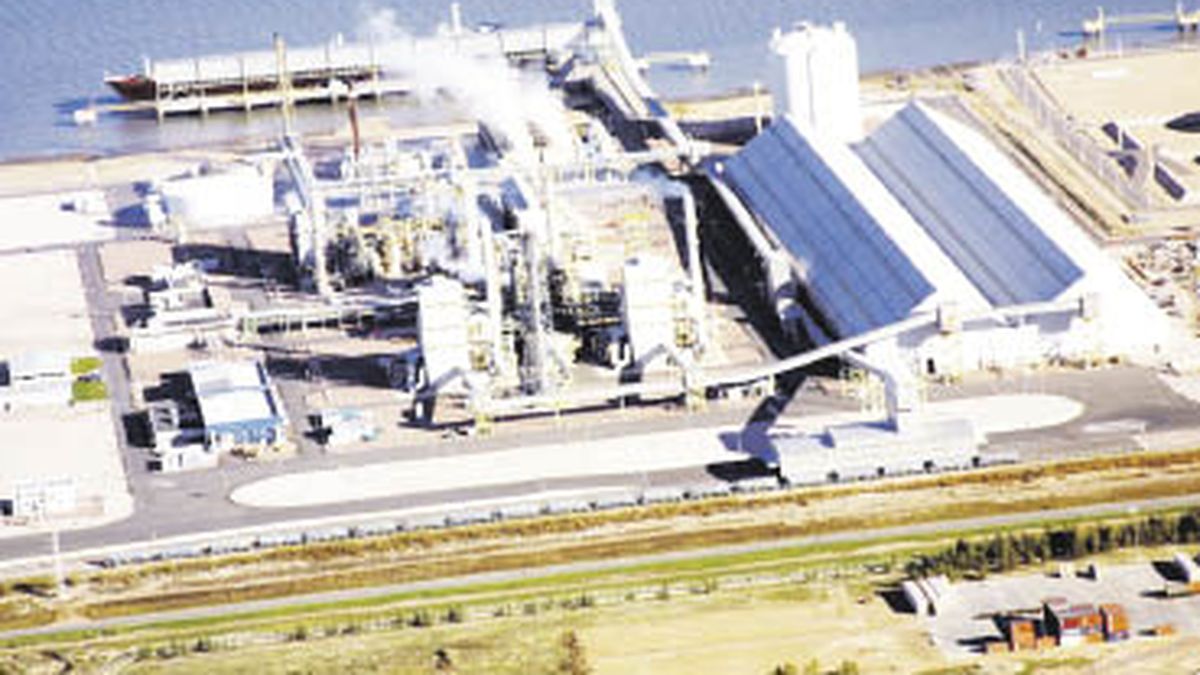However, before signing the final contract, Profértil (a company controlled in equal parts by YPF and Canadian Nutrien) wants to introduce changes to the project to incorporate Danish SynCOR technology, which reduces the carbon footprint of the industrial process. This modification and other changes were pushed at the request of Nutrien.
The international tender to expand the Profértil urea plant in the port of Bahía Blanca was launched in August 2019, with the aim of selecting the best technological and engineering proposal to carry out the project.
Finally, towards the end of 2021, Profértil decided on the Techint-Saimpem proposal, which thus relegated the other competitor AESA, a solutions company for the energy market controlled by YPF, which participated in association with the firm Technip.
Techint and Saipem (subsidiary of ENI and continuation of Snam Montaggi) formed the joint venture that built the Profértil urea plant in 2001 and expanded it in 2005. The expansion of the plant aims to double the installed capacity, currently around 1, 3 million tons of urea per year (about 4,000 t/day). The plant consumes 2.5 million cubic meters of gas per day. In addition, the new works would result in the creation of more than 1,500 jobs, between direct and indirect, the companies calculate.
But Profértil informed the winners that it wanted to introduce a series of significant changes in the technical project that were not in the initial specifications and that is why the contract for the execution of the project has not yet been signed, according to the EconoJournal portal, citing market sources. energetic.
While they seek to agree on this and other review instances, the parties opened a parenthesis until June 30. Meanwhile, from Profértil they indicated that “formally, the bidding process is still open since the award has not yet been finalized,” according to the specialized portal.
Nutrien considered it necessary to include the application of SynCOR technology in the original specifications to carry out the production of synthesis gas in a more sustainable manner. Said technology belongs to Haldor Topsoe, a company specialized in carbon reduction technologies, founded in 1940 in Denmark.
Among the advantages provided by SynCOR technology, it stands out that it leaves a smaller CO2 footprint and consumes less water compared to traditional licensed technologies. It also allows maximizing production by reducing operating costs.
Profértil’s concern to move towards a sustainable production scheme is not new. Since 2020, more than 60% of the energy consumed at its Bahía Blanca plant has come from renewable sources, such as the Los Teros wind farm, located near Azul, in the province of Buenos Aires.
Source: Ambito
David William is a talented author who has made a name for himself in the world of writing. He is a professional author who writes on a wide range of topics, from general interest to opinion news. David is currently working as a writer at 24 hours worlds where he brings his unique perspective and in-depth research to his articles, making them both informative and engaging.




